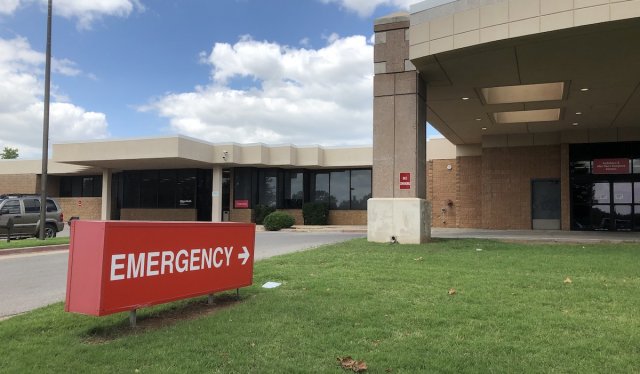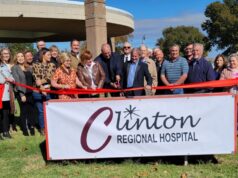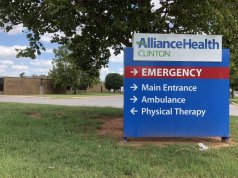

Clinton voters sent a strong message today that they want a hospital in their city.
A measure that frees up $11.6 million to reopen Clinton Regional Hospital won 93.7 percent of the vote, passing 1,221 to 81 in the Custer County community. Failure of the issue would have kept the hospital closed, forcing residents to continue driving to the Weatherford hospital about 15 minutes to the east along I-40.
A private hospital management company, AllianceHealth told city officials last year it was closing Clinton Regional Hospital on Dec. 31. AllilanceHealth, which operated the hospital the past several years, gradually had been reducing services.
But instead of transferring state and federal licenses to the city of Clinton as previous operators had done, the company canceled the permits. Reapplication for those licenses will require the city to spend millions of dollars on upgrades to the hospital, which was built in 1973.
When the hospital was built, the city of Clinton operated it, and a fund was established to pay for long-term needs, according to Mayor David Berrong said. The fund started out with about $6 million. With interest and revenue over the years, the fund now stands at $11.6 million.
But to get access to that fund, the city’s hospital authority, made up of the Clinton’s City Council members, had to get approval from voters.
Mayor David Berrong said today’s vote showed the wisdom of Clinton residents, both those who established the fund decades ago and those who voted for the release of the money to reopen the hospital.
“They know that we’re headed for a new day, and we have an advantage over a lot of difficult rural hospital situations because we do have the resources, we do have the finances,” he said. “It’s one of those things where the people spoke twice – they said 30 years ago lock the money up and let it draw interest, do whatever it’s going to do, and on a rainy day we will vote when it’s time to release the money. And that’s exactly what happened. Clinton is an extremely positive place to live.”
Berrong said it’s unknown how long it will take to make any building upgrades and to get the required federal and state licenses.
“It’s going to be a bigger and better health care system for Clinton and western Oklahoma,” he said.
However, residents of Clinton, a city of about 8,600 people about 80 minutes west of Oklahoma, will get some immediate relief. An urgent care clinic is expected to open Monday in a section of the hospital.
The clinic will be managed by Carrus Health, a private health care organization. Carrus Health may seek to operate Clinton Regional Hospital once it is ready to reopen, Berrong said.
The city operated its hospital for the first 25 years, but then hired outside operators. A couple different private companies operated the hospital the past 12 years.
AllianceHealth closing other hospitals?

AllianceHealth, which operates hospitals in Durant, Madill, Ponca City and Woodward, has been shrinking its footprint in Oklahoma. Last year, it ended its operations of a medical facility in Seminole and announced last year it will not renew the lease for the hospital in Woodward when it expires Nov. 30, 2023.
Rep. Anthony Moore (R-Clinton) criticized the company’s handling of the situation.
“They basically pulled out and stuck a knife in it and tried to kill it all at once,” Moore said. “It’s really disheartening that an entity and a company that is intended to be care providers just understands that they are leaving big holes in coverage without caring about it.”
Patti Davis, president of the Oklahoma Hospital Association, said rural hospitals provide a critical safety net to the communities they serve, providing access to vital, often life-saving health care.
“When a hospital permanently closes, it may create a domino effect of lost healthcare services as physicians leave the community and clinics and pharmacies close,” she said. “Most importantly, time is a critical factor in a health emergency. The necessity to transport patients longer distances for emergency care can mean life or death and can put additional stress on local ambulance services.
“In addition, rural hospitals across Oklahoma are key economic engines and often leading employers in their communities. Providing support to their local hospital is one of the most important things a community can do to ensure ongoing quality of life and economic stability for its residents.”




















